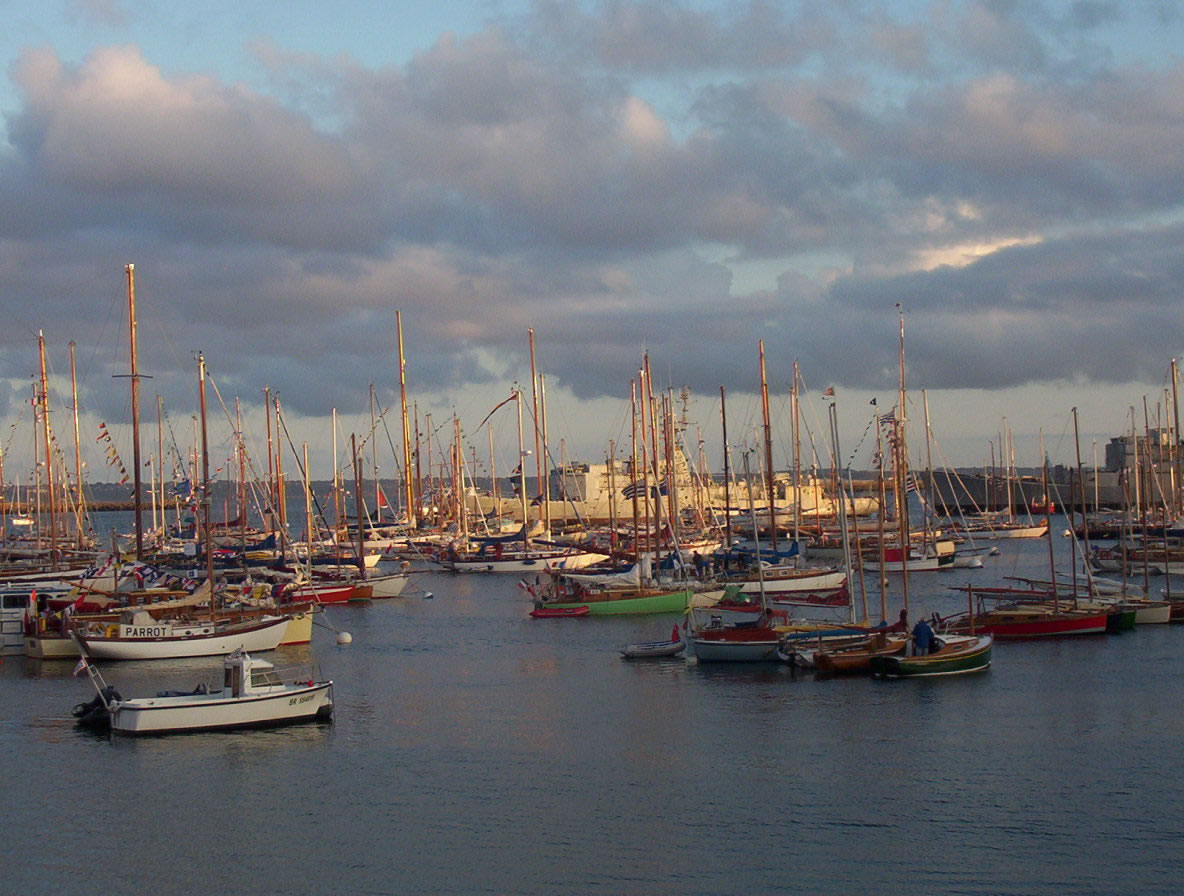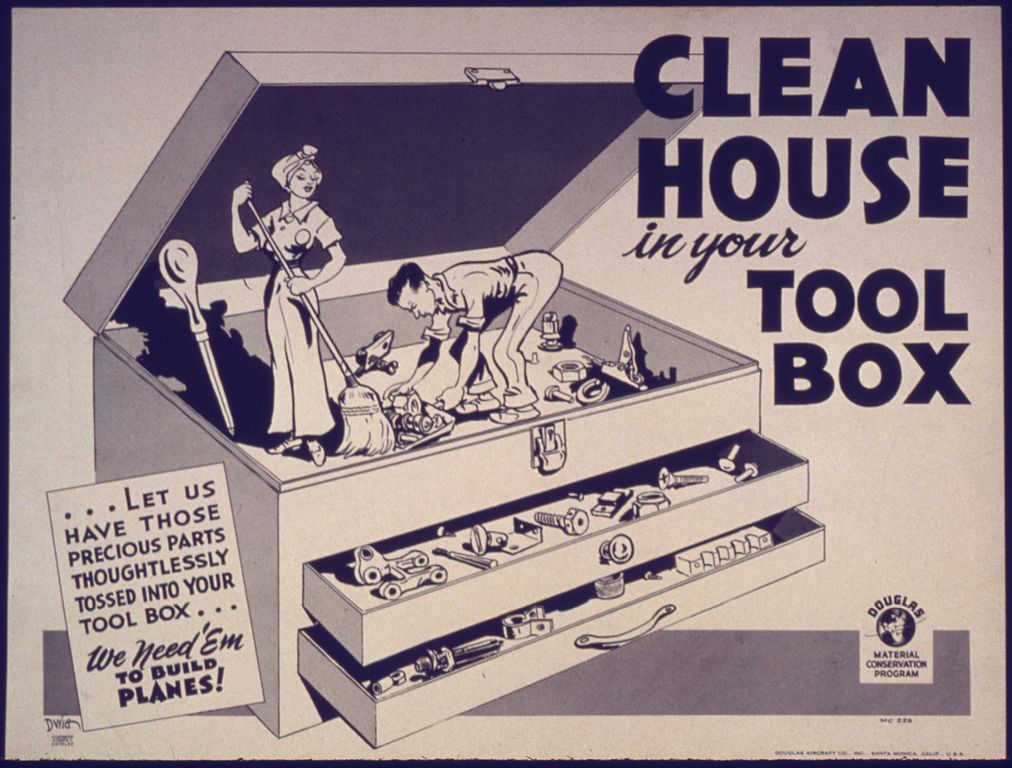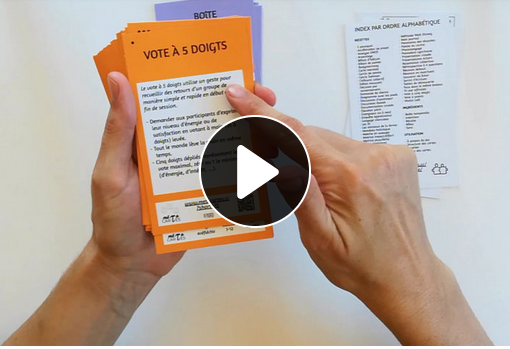Après un peu plus de deux ans de travail de cartographie de formats d’évènements co-créatifs, j’ai collecté plusieurs centaines d’ingrédients et de recettes de réunions participatives et d’évènements co-créatifs, mais aussi identifié de nombreuses ressources sur le sujet.
Voici une petite mise à jour sur le travail accompli et des liens vers ces ressources.
Des ingrédients et des recettes pour des rencontres co-créatives
Il y a deux ans, je profitai des rencontres participatives mousTIC 2013 pour organiser un chantier afin de démarrer un travail de recensement d’ingrédients et de recettes de réunions participatives et d’évènements co-créatifs.
Je cherchai à cartographier tout type de rencontres qui me semblait avoir des ingrédients interessants pour la co-création et le faire ensemble.
Au delà des formats d’animation, certains de ces évènements sont listés car ils contiennent des éléments architecturaux ou encore culturels qui influencent l’interaction dans un groupe et son intelligence collective.
Je n’ai pas encore eu le temps pour mettre tous mes résultats par écrit, mais je vous propose en attendant une mise à jour sur les ressources que j’ai générées ou collectées durant le processus et qui pourront déjà intéresser beaucoup de monde.
Bibliothèque de recettes et d’ingrédients en français:
Le tableur crée en 2013 a bien joué son rôle de prototype et m’a permis de lister plus de 200 formats en français.
Issus du monde l’entreprise, des start-ups, des méthodes agiles ou encore de l’éducation populaire, du monde artistique ou de pratiques traditionnelles ces formats sont très divers.
Pour chacun d’eux, j’ai essayé de mettre un lien vers une recette plus détaillée à chaque fois que c’était possible.
- Voir la liste en français: https://docs.google.com/spreadsheet/ccc?key=0AvjAaLhwfefxdF9Ka3hBekl3ajBiU2NFTndtV3hULVE#gid=13
Co-Creative Recipes.cc – bibliothèque de recettes et d’ingrédients en anglais
Si le tableur m’a bien servi pour démarrer, ce prototype a fini par trouver ses limites. Arrivé à presque 400 entrées, cette base de données devenait en effet très lourde et il devenait très difficile de suivre les changements apportés par les contributeurs.
J’ai donc décidé de lancer un nouveau prototype sur un site en dur. Après avoir beaucoup hésité, j’ai choisi de ne pas lancer un wiki, pourtant outil vedette des projets contributifs, préférant à la place promouvoir un modèle de coopération distribué (voir l’article Towards a #GitWeb for distributed collaboration).
Le site anglophone liste donc à présent plus de 450 ingrédients et recettes et contient plus de formats que le tableur qui n’est plus mis à jour.
Vous pourrez retrouver ces formats classés par des mots clés soit pour le type d’objectif (réfléchir, faire, partager, …) soit par domaine d’utilisation (business, biens communs, agriculture, urbanisme, art, …)
- Liste des ingrédients et recettes créatives en anglais: http://www.co-creative-recipes.cc/
Minga de brest: un prototype de format pour s’auto-organiser en tant que groupe
Comment s’auto-organiser en tant que groupe ? Comment passer d’une envie commune à une action commune ? Comment aligner les intentions quand on ne se connait pas bien ? Comment s’accorder sur un mode de gouvernance moins pyramidal et plus distribué ?
J’ai profité de la rencontre du forums des usages coopératifs de Brest pour organiser un atelier ayant pour but de co-créer un kit qui aiderait les groupes à co-créer des biens communs.
- Voir à ce sujet: Minga de Brest: co-création d’un kit de co-création de biens communs
Autres Ressources
Au cours de mes recherches j’ai identifié de nombreuses ressources (merci à ceux qui ont pointé ces ressources!). Voici pour compléter une liste de ressources en français.
Movilab, formats d’animation innovants
Une ressource listant des formats d’animation pour les tiers lieux porté par les collègues et amis du réseau francophone des tiers-lieux open-source. Au delà des formats d’animation, le site contient de nombreuses informations pour monter et faire vivre un tiers lieux.
Multi Boite à Outils – MultiBAO
Conçue sur mesure pour les animateurs de réseaux / groupes, c’est une multi Boîte à outils dédiée à l’organisation en collectif et la gestion de projet. Projet très prometteur porté et de développé par les collègues et amis de CPCoop et Scopyleft, ce travail est très proche de ma propre démarche et nous nous influençons mutuellement. Au delà du contenu, l’intérêt du site réside dans son approche qui vise à interconnecter les ressources déjà existantes sur le web.
- License: CC-BY-SA
- http://www.multibao.org/
AnimFR
Une liste de ressources porté par le groupe francophones des animateurs de réseau coopératifs AnimFr.
- License: CC-BY-SA
- http://imaginationforpeople.org/wiki/workgroup/animfr/animfrtechniques
Un nouvel art de militer
- Contient une liste d’évènements d’artivisme, combinant action directe et arts créatifs (guerrilla gardening, happenings,…)
- Licence: Copyright
- https://fr.wikipedia.org/wiki/Un_nouvel_art_de_militer
Les outils du “Faire Ensemble”
- Le livre “Faire Ensemble, Outils Participatifs pour les Collectifs” présente des outils participatifs et concrets pour les collectifs, les associations et notamment les porteurs d’habitat groupé. Ces outils clarifient la vision développée par le groupe et en approfondissent la cohérence. Ils sont utiles pour les facilitateurs professionnels ou occasionnels.
- Licence: Copyright ?
- http://www.passerelleco.info/article.php?id_article=1794
Ressources en anglais
Voici une collection de ressources en anglais que j’ai compilée au cours de mes recherches. Celle ci sont classées avec d’abord les ressources libres qui sont complètement réutilisables, puis les ressources à réutilisation plus restreinte. J’ai gardé la description correspondante en anglais.
Group Works
- The Group Works card deck is designed to support your process as a group convenor, planner, facilitator, or participant. The people who developed this deck spent several years pooling our knowledge of the best group events we had ever witnessed. We looked at meetings, conferences, retreats, town halls, and other sessions that give organizations life, solve a longstanding dilemma, get stuck relationships flowing, result in clear decisions with wide support, and make a lasting difference. We also looked at routine, well-run meetings that simply bring people together and get lots of stuff done. The deck consists of 91 full-colour 3.5″ x 5.5″ cards (plus a few blanks to add your own patterns), a five-panel explanatory insert, and an accompanying booklet explaining the purpose and history of the project and suggesting uses for the cards in group process work.
- License: CC-BY-SA
- http://groupworksdeck.org/deck
Core Protocols for Shared vision
- The Core Protocols are practices that enable people to aggregate their virtues – and hence starting that aggregation is starting down the path toward greatness. Being great also means dropping behaviors that don’t lead to greatness. Those changes are not easy, but they can be rewarding.
- Licence: GNU General Public License
- http://liveingreatness.com/core-protocols/
Shareable’s HowTo
- Although not purely focussed on events, Shareable provides many free/libre recipes on various topics, including co-creative events.
- License: CC-BY
- http://www.shareable.net/how-to-share
The Work That Reconnects
- Drawing from deep ecology, systems theory and spiritual traditions, the Work That Reconnects (WTR) builds motivation, creativity, courage and solidarity for the transition to a sustainable human culture.
- License: CC-BY
- http://workthatreconnects.org/category/seeing-with-new-eyes/
P2P foundation – facilitation category
- List several participatory processes and points to several methods
- License: CC-BY-SA
- http://p2pfoundation.net/Category:Facilitation
KSToolkit
- List several participatory process and points to several methods
- License: CC-BY-SA
- http://www.kstoolkit.org/KS+Methods
Liberating structures
- Liberating Structures are easy-to-learn microstructures that enhance relational coordination and trust. They quickly foster lively participation in groups of any size, making it possible to truly include and unleash everyone. This website offers an alternative way to approach and design how people work together. It provides a menu of thirty-three Liberating Structures to replace or complement conventional practices. Liberating Structures used routinely make it possible to build the kind of organization that everybody wants. They are designed to include and unleash everyone in shaping next steps.
- License: CC BY-NC 3.0
- http://www.liberatingstructures.com/ls/
Frog collective action toolkit
- a set of activities and methods to enable groups of people anywhere to organize, collaborate, and create solutions for problems impacting their community.
- License: CC-BY-NC-SA
- http://www.frogdesign.com/work/frog-collective-action-toolkit.html
Project of How
- Project of How is a place to store and share creative methods. 25 methods listed with details about purpose, time and elements needed, … readers can submit improvements to the methods.
- License: License: CC-BY-NC-SA ?
- http://projectofhow.com/
Teampedia
- Teampedia is a collaborative encyclopedia of free team building activities, free icebreakers, teamwork resources, and tools for teams.
This site is designed for: team leaders, trainers, teachers, managers, camp directors, counselors, youth groups… anyone interested in enhancing collaboration and creativity. Teampedia currently hosts over 80 free icebreakers and over 200 free team building activities. - License: CC-BY-NC-SA
- http://www.teampedia.net/wiki/index.php?title=Main_Page
Design with Intent toolkit
- collection of design patterns for influencing user behaviour through design
- License: CC-BY-NC-SA
- http://requisitevariety.co.uk/design-with-intent-toolkit/
SILK Method Deck
- The SILK method deck is a handy collection of methods, principles and prompt cards, which can be used by project teams, designers, project managers, social science researchers, community and economic development experts alike.
- License: CC-BY-NC-ND
- http://socialinnovation.typepad.com/silk/silk-method-deck.html
Bootcamp Bootleg Design Methods
- This compilation is intended as an active toolkit to support your design thinking practice. The guide is not just to read – go out in the world and try these tools yourself. In the following pages, we outline each mode of a human-centered design process, and then describe dozens of specific methods to do design work. These process modes and methods provide a tangible toolkit which support the seven mindsets — shown on the following page – that are vital attitudes for a design thinker to hold.
- License: CC-BY-NC-SA
- http://dschool.stanford.edu/wp-content/uploads/2011/03/BootcampBootleg2010v2SLIM.pdf
Beautiful Trouble
- Specific forms of creative action, such as a flash mob or an occupation, insights that can inform creative action design.
- License: CC-BY-NC-SA
- http://beautifultrouble.org/
The Barefoot Guides
- all freely available online, bring stories, analyses, approaches and resources of interesting practice from around the globe, each under a key theme. The Barefoot Guide Connection is a global community of practice producing the guides and other fresh resources to stimulate fresh approaches to social change.
- License: CC-BY-NC-SA
- http://www.barefootguide.org/bfg-downloads.html
Participedia
- A database listing methods for participatory politics and governance. Participedia’s research goal is to develop a large article and database that will support evidence-based answers to the question: What kinds of participatory processes work best, for what purposes, and under what conditions?
- License: CC-BY-NC-SA
- http://participedia.net/
Gamestorming
- A playbook for innovators, rule-breakers and changemakers
- Licence: Copyright
- http://www.gogamestorm.com/
Icebreakers at the Open Directory Project
- list of websites proposing icebreakers methodology
- Licence: Various
- http://www.dmoz.org/Games/Party_Games/Icebreaker_Games/
Mapping Social Design Practice: Beyond the Toolkit
- A collection of various design/co-creation toolkits
- Licence: Various
- http://mappingsocialdesign.org/2013/11/19/mapping-social-design-practice-beyond-the-toolkit/
International Association of Facilitators Method database
- This site is intended for professional facilitators and is dedicated to online and face-to-face methods for creating, leading and following up group meetings. The site has a big database of facilitation methods. Although some of them are not well documented, the list is useful.
- Licence: Copyright ?
- http://www.iaf-methods.org/
Creativity and innovate Techniques – an A to Z
- This A to Z of Creativity and innovate Techniques, provides an introduction to a range of tools and techniques for both idea generation (Creativity) and converting those ideas into reality (innovate).
- Licence: Copyright ?
- http://www.mycoted.com/Category:Creativity_Techniques
Spontaneous interventions
- Creative technics to change the urban and social environment. this collection of tactical urbanism is written in a pattern format (context, problem and answer).
- Licence: Copyright
- http://www.spontaneousinterventions.org/interventions
Collaboration Soup: A Six-Step Recipe For Co-Creative Meetings and Other Conversations
- Collaboration Soup is a guide for transforming boring and frustrating meetings into productive and enjoyable ones. This play and easy to read book is based on the classic fable Stone Soup, where hungry people working cooperatively and collectively make a great meal for everyone to share.
- Licence: Copyright
- http://www.amazon.com/Collaboration-Soup-Six-Step-Co-Creative-Conversations/dp/1449907679
HopeLab Check-in Deck
- A collection of our most memorable check-in activities at HopeLab, used to kick off and close staff meetings and retreats. The exercises are simple tools we use to help create quality connections between our staff.
- Licence: unknown – contact cmurchison@hopelab.org
- http://www.hopelab.org/wp-content/uploads/2013/06/HopeLab_CheckInDeck.pdf
Change Handbook
- This book is about effective change. It describes methods for changing “whole systems,”that is, change based on two powerful foundation assumptions: high involvement and a systemic approach to improvement. High involvement means engaging the people in changing their own system.It is systemic because there is a conscious choice to include the people,playctions,and ideas that can affect or be affected by the work.Whole system change methods help you initiate high-leverage, sustainable improvements in organizations or communities.
“High-leverage” is emphasized because in any improvement effort,we want the highest possible value for the effort invested. - Licence: unknown
- https://sites.google.com/site/thechangehandbook/samples
LUMA Institute innovate processes
- Luma Institute has created a framework to help you choose the best tool for each step of the innovate process, based on the people you’re
designing for and the complexity of the systems in which you operate. Luma distilled the portfolio down to 36 of the most effective tools for innovate—the majority of them in common use—organized in three categories: looking, understanding, and making.
Each category contains three subcategories, and each subcategory contains four innovate tools. This hierarchical model makes it much
easier to identify the tools you need and then put them to use. - Licence: Copyright
- http://luma-institute.com/resources.html
Fearless Change: Patterns for Introducing New Ideas
- Fear Less: Introducing New Ideas into Organizations 48 patterns for driving and sustaining change in your organizationChange. It’s brutally tough to initiate, even harder to sustain. It takes too long. People resist it. But without it, organizations die. Fortunately, you can succeed at making change. In Fear Less, Linda Rising and Mary Lynn Manns reveal 48 patterns of behavior associated with successful change in knowledge-driven organizations, and show exactly how to use them in your organization.
- Licence: Copyright
- http://www.amazon.com/Fearless-Change-Patterns-Introducing-Ideas/dp/0201741571
Actipedia
- Actipedia is an open-access, user-generated database of creative activism. It’s a place to share, read about, and comment upon experiences and examples of how activists and artists are using creative tactics and strategies to challenge power and offer visions of a better society.
- Licence: unknown
- http://actipedia.org/
The Culture Game Book
- The Culture Game is the book for managers who are seeking more agility and much more engagement for their team, their department and the wider enterprise. The book is a road map that provides sixteen learning practices and a proven strategy for socializing them throughout your organization. The Culture Game is your tutorial and reference guide for taking learning and productivity in your organization to the next level. Inside this book you will find all the tools you need to get results right now.
- Licence: Copyright
- http://newtechusa.net/about/the-culture-game-book/
Innovation games
- At Conteneo, we help organizations large and small put their ideas into action by playing games. Playing games to do work? You bet. Our online game platforms (Innovation Games® Online and Knowsy), along with our services enable companies to solve problems across the enterprise–in sales, corporate strategy, product development and marketing–by using the creative spark of collaborative play to tap into true innovation. From discovering new ideas to prioritizing killer new features, Conteneo helps put your ideas into action and bring breakthrough products and services to market—faster and more efficiently.
- Licence: Copyright
- http://www.innovationgames.com/resources/the-games/
Thiagi Training Games
- This section contains more than 350 ready-to-use training games and activities. Most of them were published in the Thiagi GameLetter.
- Licence: Copyright
- http://www.thiagi.com/games.html
Wilderdom Icebreakers
- List several icebreakers
- Licence: Unknown
- http://wilderdom.com/games/Icebreakers.html
Card Decks for Creative Problem Solving
- List of 21 Card Decks for Creative Problem Solving, Effective Communication & Strategic Foresight combined by Venessa Miemis
- Licences: various
- http://emergentbydesign.com/2012/10/25/21-card-decks-for-creative-problem-solving-effective-communication-strategic-foresight/
Process Arts Participatory Processes
- List several participatory process
- Licences: Unknown
- http://processarts.wagn.org/Participatory_Processes
A suivre…
Merci à tous ceux qui ont contribué d’une manière ou d’une autre à ce travail en me transmettant des formats ou des ressources. Si vous connaissez d’autres ressources dignes d’intéret, laisser un commentaire !
Pour ceux qui s’interessent à ces sujets, j’espère vous voir à mousTIC, ces rencontres qui m’ont inspirées ce travail et où en plus des formats variés déja utilisés, nous expérimenterons cette année un forum collaboratif, sorte de forum ouvert enrichi par des formats d’animation spécifiques.
Photo d’en tête: CC-BY – Office Now
Cet article a nécessité 4h de rédaction et de nombreuses heures de travail préalable pour recenser et annoter ces ressources.
Recevez mes derniers articles sur les outils, les usages coopératifs et le travail en réseau.
[subscribe2]



